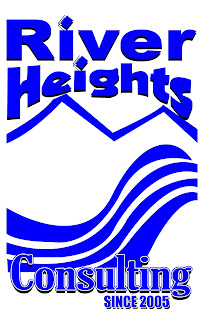Infamous Letters in History
 A few letters occupy prominent positions in the lexicon of history; lingering long after the day they were opened. Some are remembered for their articulate and near-perfect use of the English language. Others tarry in our minds based on the diabolical message they transmitted. A new letter has found its way into this noted and well-studied class. Before we get to the latest addition, join me as we review a few famous or possibly infamous letters,
A few letters occupy prominent positions in the lexicon of history; lingering long after the day they were opened. Some are remembered for their articulate and near-perfect use of the English language. Others tarry in our minds based on the diabolical message they transmitted. A new letter has found its way into this noted and well-studied class. Before we get to the latest addition, join me as we review a few famous or possibly infamous letters,The Bixby letter is famous for its perfect use of the English language. Along with the Gettysburg Address, the letter is one of Abraham Lincoln’s most studied remembrances. Ironically, it was published in the Boston Transcript on the same day the post was delivered to a Mrs. Bixby on November 25th, 1864. Here’s what it said:
“Dear Madam,I have been shown in the files of the War Department a statement of the Adjutant General of Massachusetts, that you are the mother of five sons who have died gloriously on the field of battle.”
I can still remember the day I first read this letter and even though Lincoln was known as a caring and otherwise sensitive soul, I shook my head and thought perhaps there might have been a better way of sending the news.
Keeping with the armed force’s motto, this is a letter received by several friends back in my younger years. Perhaps some of those reading got the same cheery greeting from their friends down at the Selective Service System. Here is the famous first line:
“Greetings,You are hereby ordered for induction into the Armed Forces of the United States, and to report at…”
Yet another letter that became so common-place that it has found its way from a single handwritten message back in 1941 to international fame. Celebrated in poetry, song, and cinema, this letter has since been replaced by the text message, but here goes:
“Dear John,I have found someone else whom I think the world of. I think the only way out is for us to break-up…”
Finally, and according to internet research, this one is real. After applying for a job and going through several interviews, the recipient received a well thought out flush letter:
"Thanks for your interest, but we decided to hire someone who's actually good."
What’s the point of this walk down memory lane? A new letter is making the rounds. A letter received by distributors across the continent. We’ve named it the “Dear Valued Supplier” letter.
The Valued Supplier Letter
Soon to find a warm spot in the modern mythology of purchasing and procurement departments everywhere and starting off with the warm and impersonal greeting “Dear Valued Supplier,” this letter comes slithering in with the morning’s mail. Most of the time, the letter bears no specific recipient. It’s not personalized and carries all the hallmarks of a circa 1980s junk mail greeting to current residents.
Since everyone wants to ensure their suppliers are safe in these days of the COVID crisis, the letter generally starts with an inquiry as to your health and well-being. Here are a couple of little snippets:
“We hope this letter finds you and your colleagues safe and healthy in the midst of the COVID-19 pandemic. It is at times like this that we value our business relationships more than ever. We would like to thank you for being a valued supplier of the XXXX family of companies and for the support in enabling our mutual success in the past and for many years to come.”
“In just a few weeks the COVID-19 virus has become an all-consuming global crisis; an unprecedented pandemic across the world, changing the way we function in day to day life. This situation has been emotionally, economically, and operationally challenging, forcing many of us to come up with quick solutions and innovative ways to continue to move our businesses forward.”
I know what you’re thinking, these are such caring and sensitive customers. How blessed we are to have large customers thinking about us, but there must be a catch. Everybody wants something, right?
Let’s move to the next paragraphs. Here are three examples with commentary:
“Consistent with the decreases in commodity prices worldwide, we are adjusting the prices we pay for certain commodities to match recent market trends. Therefore, effective May 1, 2020, we will make a ten percent (10 %) reduction to our latest price on all goods, services, and transportation that your organization provides to XXX for the next 12 months, in addition to a ten percent (10%) rebate related to all Q1 2020 purchases.”
Perhaps there have been some commodities which have
decreased over the past few months. Crude oil prices dropped like a rock with the onset of the Coronavirus Pandemic, so perhaps fuel, plastic, and lubricants were impacted. Copper dipped as well, so if they are buying copper bars or wire, maybe again, the price could be impacted. But – this letter was sent to a distributor of technical products. To the best of my knowledge, these products: a) are not really commodities and b) have not experienced any notable dip in prices.
“Our Customers have implemented precautionary measures in terms of mitigating cash flow--via extending our payment terms--which has necessitated action on our end.Thus--given these unpredictable extenuating circumstances--effective April 13th, 2020 XXX will be implementing the following measures:1. All current (open) and future Purchase Orders’ payment terms will be extended to Net 120 days2. All open & existing payables will be subject to payment terms of Net 120 days3. All current (open) Purchase Orders will be subject to a -10% reduction”
I wonder what would happen if I tried this approach with my bank, insurance company, and others providing ongoing products and services to me. Further, if you think the 10 percent price reduction is outrageous, wait till you see the next example.
“At the same time, we are laying the groundwork to capture increased demand once the pandemic-related, macro-economic fallout subsides. In order to allow us to continue to provide competitive solutions to our customers we are requesting the following from all of our suppliers:1. Immediate price reduction of 20% on all products and services2. Immediate additional 10 days added to current payment terms”
If the person responsible for sending this letter had any inclination as to the dynamics of Knowledge-based distribution, or if they realized they had already negotiated prices down on nearly every product purchased, they would have realized a 20 percent price reduction puts the new price below the cost of their local solution provider. The truth is, they have no clue.
Returning to the next section of the letter. There is an implied thought of more business if you just bite the bullet and play ball:
“Your acceptance will be one criterion used to evaluate the viability of our long-term strategic relationships. We recognize that not all suppliers will accept these new terms and, as a result, will have to consider a reallocation of our demand to those business partners that are able to support XXX during this critical time.”
What’s a Distributor to do?
A couple of smart-alec comments come to mind: First, you can’t lose money on every sale and make it all up on volume, and second, are these guys nuts? Distributors are receiving these letters from some of their biggest customers. Even though we might want to send them a nasty letter, it is better to “bite our tongue” and respond with respect (even if undeserved).
Along the way, we do need to realize this point: Bad business will put us out of business.
I can’t think of a single instance of a knowledge-based distributor making sales in a vacuum.
- We earned the business by providing valuable services along with the product. The cost of providing these services has grown faster than inflation and the market.
- Our selling price is constantly checked against the competition.
- Distributors have engaged in trilateral negotiations with the customer and our supply-partners to drive the price down, often to levels below the normal distributor price.
- Most of these large customers have already leveraged their purchase terms to over 90 days. This is well beyond the industry standard.
We don’t provide commodities.
Unlike the commodity products they purchase, most of us provide products that are not “consumed.” Instead, our work helps the customer operate more efficiently and competitively. We provide measurable value by making their workers more productive, eliminating waste, and enhancing the quality of their products. In many instances, our work improves their position in the market.
Say no, in a polite way, but say no.
Most of these letters come with a call to action which includes the purchasing/procurement person for your products and contact information. If this is the case, the easiest way to say no is to simply toss the letter; after all, it is a form letter with no personalized recipient. Don’t be surprised if someone calls your company. Be prepared. Instruct your team, no one has the power to authorize a change in price or terms except management.
When the call comes plainly explain the dynamics of our world. Keep these in mind:
- Industry benchmarking indicates distributors in our industry operate with a 2-3 percent profit margin. A price reduction of this nature is not possible.
- The average gross margin for a distributor in our industry is approximately 20 percent. This means a price reduction is not possible.
- Benchmarking shows your company is as efficient or more efficient than most other distributors serving your market. No amount of work on efficiencies will drive significant costs from your business. Again, this means a price reduction is not possible.
- You provide their company with many training opportunities which will help them become more effective in the way they do business.
- You are willing to assist them with value engineering as a service to find them lower quality or potential labor-saving options. But a price decrease on current purchases is not possible.
Are you starting to see a trend here?
A word of warning on weasel words
The small print on the back of purchase orders or in the email sending electronic versions often carries the buyer’s terms and conditions. Accepting the purchase order equates to accepting the buyer’s terms. A periodic check is in order.
Finally, you are not alone
Across North America, distributors are receiving these letters. When you get yours, you will go into temporary shock, but know you are not alone. I have a collection of these lovely epistles. Stand your ground. If you want to talk about the situation, give me a call. And, if you want to add to my collection, send me a copy. No great library should be without such English language masterpieces.
Frank Hurttte is the Founding Partner of River Heights
Consulting. He combines the battle scars
of 28 years of front line "in the trenches" experience with over 13
years of service to knowledge-based distributors and their manufacturer
partners.
Email or call today for a free 30-minute consultation!






Comments